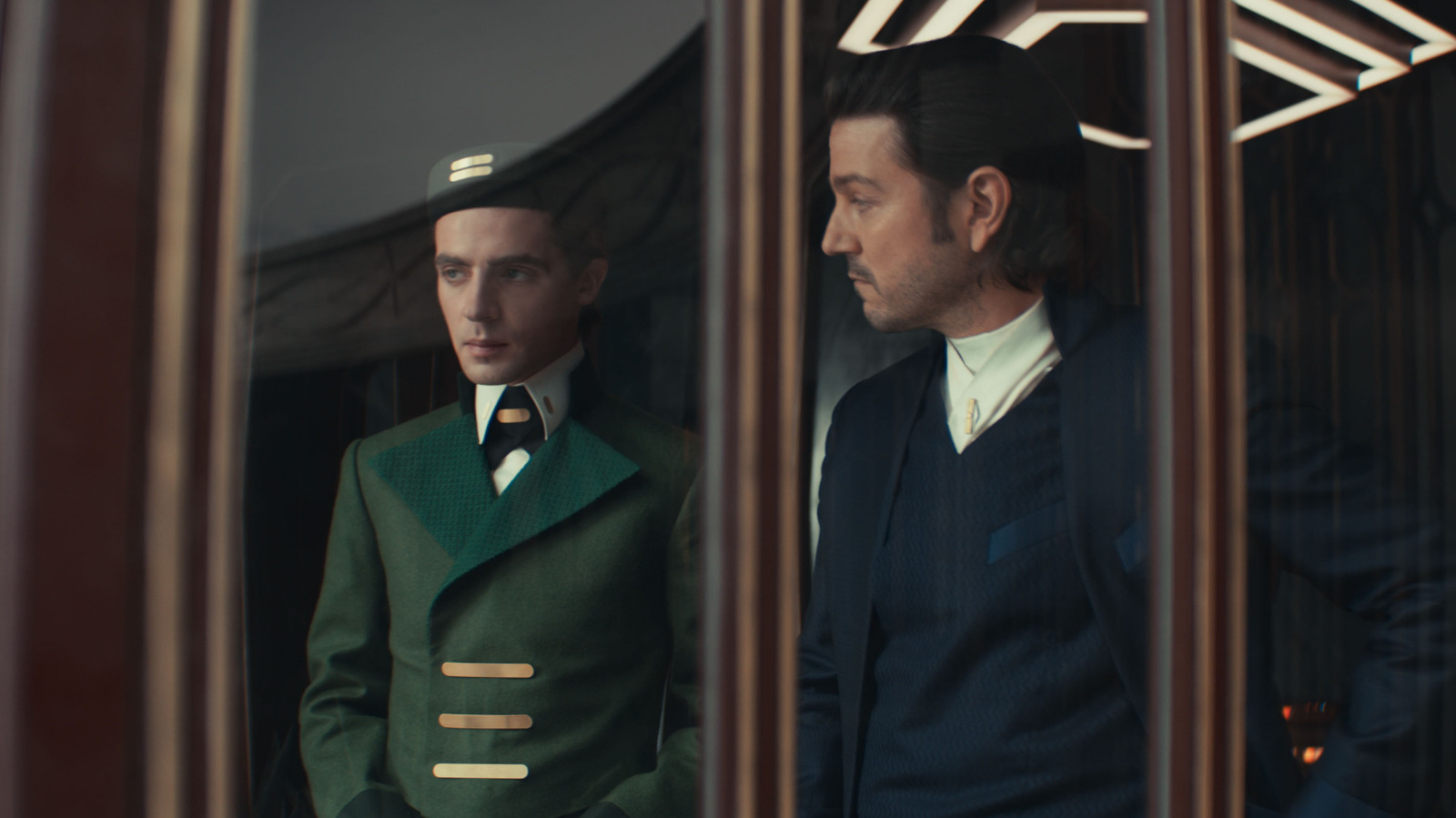
“Andor” spoilers follow.
Tony Gilroy’s “Andor” is a masterpiece not only of the “Star Wars” franchise, being the best title since “The Empire Strikes Back,” but also just a masterpiece of television in general. Every element of the show, from its exquisite production design, to the casting and acting, to the impeccable storytelling that delivers a thrilling, poignant, and timely story about fighting fascism, work together seamlessly to deliver the best TV show of the year.
Advertisement
An underrated but no less brilliant aspect of “Andor” is the way it connects to the rest of the franchise. Ever since the prequel trilogy tried its best to give an origin story to every single character both major and minor, “Star Wars” has had a bit of an awkward approach to interconnectivity. We have had origin stories like how “The Bad Batch” shows the poignant turn from clones to stormtroopers, but also the moment in “Solo: A Star Wars Story” where Han gets his last name simply from being unaccompanied.
“Andor” is by far the best example of connecting to the rest of the galaxy without feeling forced. Every Easter egg, every nod feels thought out and intentional, rather than pure fan service. Not only does the show connect to the original trilogies, but it also brings in things from Legends, the prequel era, and more. Of course, as Tony Gilroy has repeatedly teased, the season is building up to end right as “Rogue One” begins, so there are plenty of nods to that movie, adding context to character choices, or just turning already great lines into gut-punches.
Advertisement
Rebellions are built on hope
“Rebellions are built on hope” is probably the single best line in “Rogue One,” a poignant, emotionally-charged line that ends up being what lights the spark that fuels the Battle of Scarif and gives the Rebellion its first victory. There was no need to explain that line, or give it any added context, but nevertheless that’s what happens in episode 8 of “Andor.”
Advertisement
In the episode, Diego Luna’s Cassian Andor heads to Ghorman to try and assassinate Dedra Meero (Denise Gough) out of revenge for what happened on Ferrix. Realizing the danger the people of Ghorman are in, and how hard it is to even get a clean shot of Dedra, Cassian decides to abort the mission and get the hell off of the planet. On his way out, Cassian turns into Thela (Stefan Crepon), the hotel clerk who explained the history of the first Ghorman massacre to Cassian. Cassian wishes Thela good luck, recognizing the signs that Ghorman is on its way to ending up like Ferrix did, to which Thela simply replies, “Rebellions are built on hope.”
It’s a simple, brief nod, but one that speaks volumes about the kind of show “Andor” is, and a nod that makes both this show, Cassian’s arc, and “Rogue One” better than they were before. Cassian tells that line to Jyn Erso (Felicity Jones) at a time when he’s fully committed himself to the Rebellion beyond any doubt, after all. To see that he first heard the phrase while still having doubts about his place in the Rebellion, and to have him hear that phrase from a guy who already survived a massacre by the Empire and is about to experience the genocide of his entire people, is both heartbreaking, rousing, and goosebumps-worthy. The moment recontextualizes Cassian saying that line in “Rogue One,” adding yet another layer of tragedy to the character and his relationship to the Rebellion. The line was already great, but now? It might be one of the most important in all of “Star Wars.”
Advertisement
The Ghorman Massacre is the turning point of the Imperial Era
“Andor” episode 8 gave us the emotional crux of the season, the antithesis to the “One Way Out” episode of “Andor.” Where that episode was about seeing the oppressed finally fight back and achieve freedom (though not without heavy sacrifices), episode 8 of season 2 is just 45 minutes of pure, relentless horror and heartbreak. This is the Empire at its most evil, a moment we’ve known was coming not just because of “Star Wars Rebels,” but because the show itself told us in the very first episode of the season that Ghorman was doomed to die. Well, no amount of preparation was enough to lessen the emotional devastation of seeing the massacre play out in real time.
Advertisement
This is by far the most heart-wrenching thing we’ve seen in “Star Wars,” an episode that far surpasses the shock of seeing Alderaan blow up in the very first movie, or the seats of the New Republic blow up in “The Force Awakens.” This is not some superpowered evil, but entirely human, grounded evil, one that is calculated, planned by committee, and executed without remorse.
Director Janus Metz makes the episode feel like a documentary war film while also essentially delivering “Les Misérables” in a galaxy far, far away (truly, Victor Hugo’s novel has been a huge part of the DNA of this show from the start). The sight of a peaceful protest against occupation turning into a widespread massacre is the most visceral the franchise has ever been. It’s heartbreaking, riveting, extremely well-made, and also quite timely in the way it portrays Imperial propaganda at work — as we see several news crews reporting the events making it look like the Ghormans attacked the Imperial officers on the planet while in reality they were being massacred. This is the moment everything changes for the “Star Wars” galaxy, and for the Rebellion. The galaxy was watching.
Advertisement


